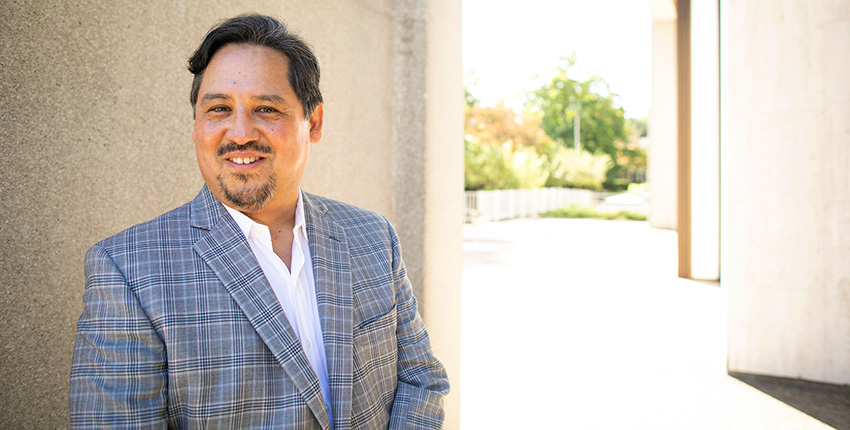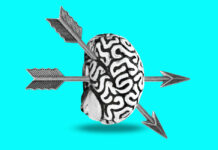In a new article, indigenous psychologist Joseph Gone of Harvard University argues that decolonizing research methods is not only necessary for advancing social justice but that it will also improve the state of psychological science. Calls for decolonizing psychology stem from the recognition that the field has rigidly upheld ways of thinking about and researching mental health that are rooted in historically Western conceptions—leading to the exclusion and even extermination of multicultural ways of approaching these issues.
In this latest paper, published in the Journal of Counseling Psychology, Gone uses examples from Indigenous healing traditions to illustrate how decolonization as a methodology might provide new ways forward for research in psychology.
“Whether the marginality experienced by other groups is colonial or not, many of the concrete suggestions in the ‘Toward Decolonization’ section of the article may still be useful in terms of legitimating local knowledge, recovering communal meaning systems, and motivating collective action,” Gone said.

Colonization is recognized as a multifaceted phenomenon that manifests itself if a variety of ways depending on the political and economic context. In whatever form it takes, colonization involves the dehumanization of the colonized, which becomes institutionalized within social systems and institutions, including the mental health system.
The Martinican psychiatrist Frantz Fanon famously argued in the 1960s that many of the ‘postcolonial pathologies’ found in Indigenous communities might well be the result of historical trauma from European-American colonization.
With the institutionalization of Western-style health care systems, many American Indians (AI) tend to seek out these more conventional mental health services. Given the disruption of cultural healing practices caused by colonization, the process of reclaiming Indigenous therapeutic traditions has become an important avenue for decolonization. However, for this to take place, psychotherapy and health service psychology must deal with the tension between current approaches to psychiatry and Indigenous understandings of health and healing.
Gone proposes a framework for understanding decolonization as an approach to research, rather than a specific type of research design. It is less about the use of particular methods and more about utilizing an approach that provides a set of aims for research. Given that not much research on decolonization has been done within the fields of counseling and psychotherapy, this article offers strategies for psychologists to participate in decolonization in research, practice, and training in health service psychology.
Gone demonstrates this approach to decolonization as a methodology by analyzing the life narrative of an American Indian medicine man. This example demonstrates how qualitative methods can be used to recover a colonized therapeutic tradition.
The tradition, in particular, is that of the Aaniiih-Gros Ventre healer, Bull Lodge. By drawing out the essential features of the Aaniiih therapeutic tradition, Gone considers how method, power, and process are related to reclaiming Indigenous therapeutic traditions. The life-story of Bull Lodge, a well-known 19th-century healer of the Gros Ventres, illuminates the world of the Aaniiih within the context of a pre-reservation Indigenous healing tradition.
Gone himself is a member of the Aaniiih-Gros Ventre Indians of Montana and the northern Great Plains. Gone tells of Bull Lodge’s early documented cases that are associated with his rise as a prominent healer, highlighting the specific locations in the Aaniiih landscape where he gained his “ritual knowledge and power for healing” along with building relationships with his spiritual Patrons.
“Of special relevance to decolonization, such traditions frequently assume that much of the ‘natural’ world is animate and sentient and that much of the power for maintaining human well-being depends on relationships with beings that inhabit specific places in the world.”
Highlighted in the narrative of Bull Lodge are the ‘seven buttes,’ where Bull Lodge worked to gain notice and favor from Those Above (supra-human beings). Through a series of trials testing his character through fasting and offerings, he was eventually bestowed gifts by Beings of the landscape who felt respect and pity towards Bull Lodge.
To prepare him for his life as a noble healer, such gifts included knowledge of where to gather herbal medicines, protection in battle from a shield and robe made of buffalo hide, and a whistle with which to call upon the Butte Being to restore another to health. These events were the start of a lifetime of connection between Bull Lodge and Those Above.
Applying this to decolonizing psychology, Gone delineates the convergences and divergences between Western psychotherapy and Aaniiih healing tradition. These include the distinction of illness into its physical, mental, spiritual, and social aspects, as well as healing being understood as sacred versus secular in nature. The Aaniiih healer’s role is as a mediator between Those Above and humans through ritual, and the healer must foster these lifelong relationships.
“These relational dynamics reveal a hierarchy of persons who are ranked by facility with and access to power for bringing the world into alignment with one’s desires or wishes, including healing.”
Gone’s analysis of Bull Lodge’s life narrative includes the domains of method, power, and process in the decolonial reclamation of Indigenous therapeutic traditions with counseling and psychotherapy.
In terms of method, Bull Lodge’s healing methods were interpersonal in that his relationships with the Butte Beings were central. Gone contrasts this approach with the more mechanical behavioral interventions common in Western psychology.
From a research perspective, there are many different types of methods that can be used to study life narratives and healing practices to gain richer understandings of these traditions within the context of their specific culture. Research methods, such as archival research and other forms of qualitative inquiry, provide opportunities for comparing these traditions across AI communities and over time.
Gone invokes the work of philosopher Michel Foucault to explore how power is tied to knowledge and expressed through social institutions that control what is considered normal and deviant. Psychotherapy often aims to assimilate service users into a psycho-centric sense of self, with cultural dominance generally being downplayed in attempts at ‘cultural competence.’
Decolonization in counseling and psychotherapy means paying more attention to how power might manifest itself within psychotherapy between individuals from different cultures. Bull Lodge’s power is exercised by focusing intention in bringing one’s will to reality in communion with others.
For health service psychologists, recognizing that American Indian communities may have diverging understandings of healing and wellness requires its integration with psychological services that serve these communities. As an academic and professional discipline, a decolonial agenda in health service psychology would implicate both knowledge, practice, and training.
Gone emphasizes that decolonization as a process happening within a settler-colonial context for American Indigenous peoples requires repatriation of Indigenous lands, considering the importance of landscape to Indigenous well-being. In the service of Indigenous resistance to colonization, health service psychologists should help colonized communities reclaim their knowledge and legitimize it.
‘Accompanying‘ colonized communities requires psychologists doing research from a more participatory action orientation rather than psychologists taking the ‘expert’ role. Psychologists must also denaturalize epistemic violence enacted to colonize the other further. A decolonial position in health service psychology practice would identify and work with local healers, legitimize their practices, and make space for them within community-health services. This might also include collaborating with other community members to deliver health psychology services.
Enacting decolonization within health service psychology training would include supporting more students from colonized communities into the profession. Training programs and sites would work on building relationships with local healers so that they can share their expertise with students. The training curriculum could include exposure to non-dominant healing traditions, learning cultural analysis, and working collaboratively with communities.
Through the life story from Bull Lodge’s healing career, this paper provides health service psychology with an example of decolonization as a framework to engage in activities that promote the liberation of colonized peoples. In using such a framework, health service psychology can leverage its disciplines knowledge, practice, and training to meaningfully advance social justice in a variety of ways with different colonized peoples.
****
Gone, J. P. (in press). Decolonization as methodological innovation in counseling psychology: Method, power, and process in reclaiming American Indian therapeutic traditions. Journal of Counseling Psychology.















“Gone invokes the work of philosopher Michel Foucault to explore how power is tied to knowledge and expressed through social institutions that control what is considered normal and deviant. Psychotherapy often aims to assimilate service users into a psycho-centric sense of self, with cultural dominance generally being downplayed in attempts at ‘cultural competence.’”
Power is tied to power. Power pretends to have knowledge. And those in power do not control what is “considered” normal, they control much more than that. In fact, they control and manipulate and lie about what IS normal. Using the words “what is considered”, makes it sound as if all of society has reached a conclusion, and all that the people in power do is make sure that what the majority of society wants, is being controlled.
Report comment